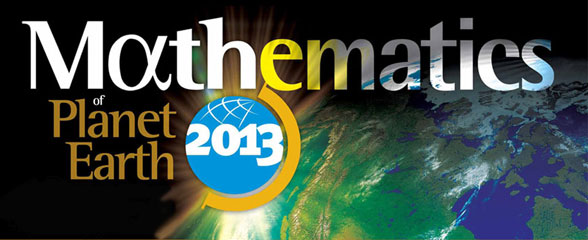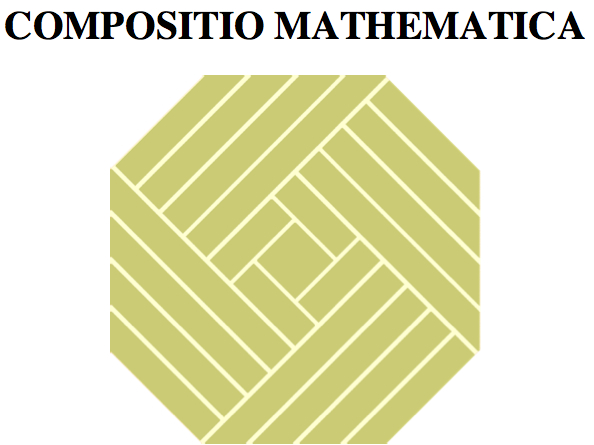Women in mathematics summer school, ICTP, 2013
Aims and Scopes
The aim of the Women in Mathematics summer school is to provide a stimulating intellectual environment for PhD students and post-docs from different countries and different mathematical disciplines. It is the fifth of a series intiatied by European Women in Mathematics, the last took place in Leiden in 2011.
The school will consist in short courses focusing on four topics of the current research in mathematics. For the 2013 edition the topics will be in the areas of Dynamical systems, Partial Differential Equations and Numerical Analysis. Each short course consists in an introductory part, a more advanced one, together with problem solving and tutorial sessions. There will be time for contributed talks and also discussions on gender issues. Participants and lecturers will be of both sexes.
A major aim of the summer school is the involvement and participation of women from developing countries, taking advantage that the school takes place at ICTP. As a matter of fact, due to a lack of female teachers in the higher education system and other possible discriminative facts, female mathematicians from developing countries may face serious problems in developing their career as researchers and may need to strengthen their motivations and professional self-confidence.
As the School’s topics mainly belong to those domains of Mathematics that are relevant to understanding the physics and complexity of our planet, the summer school is part of the Mathematics For Planet Earth Programme for 2013 (http://www.mpe2013.org/)
![]()
Scientific committee
- Lisbeth Fajstrup, Aalborg University (Denmark), EWM deputy convenor
- Stefanie Hittmeyer, University of Auckland (New Zeeland), EWM member
- Emilia Mezzetti, University of Trieste (Italy), EWM member
- Marie-Francoise Ouedraogo, University of Ouagadougou (Burkina Faso), in charge of UMA committee for women in mathematics
- Marie-Francoise Roy, University of Rennes (France), EWM convenor
- Susanna Terracini, Universitty of Milano-Bicocca (Italy), EWM standing committee, professor in Milano (chair)
- Khanum Rashida Adeeb, University of Essex (UK), EWM local coordinator in Pakistan
Venue, duration and dates.
- Venue: The Abdus Salam International Centre for Theoretical Physics (ICTP), Main Lecture Hall (LB), Trieste (Italy);
- Duration: seven days (sunday to saturday), 6 working days (monday to saturday);
- Dates: May 27-June 1st, 2013.
Minicourses
1. Nonlinear Partial differential equations. Course Directors: Giuseppina Autuori, Department of Industrial Engineering and Mathematical Sciences, Università Politecnica delle Marche, Ancona, [email protected], and Francesca Colasuonno, Department of Mathematics University of Bari [email protected]
The mathematical description of many problems in science and engineering leads to linear and nonlinear partial differential equations. This minicourse intends to bring together students and young researchers who are interested in obtaining some insight into the theory and applications of Nonlinear Anal- ysis and PDEs and to offer an environment to acquire basic and more ad- vanced techniques in the field. In a series of lectures, internationally known experts will give an introduction and present new results and techniques on topics of recent interest. In particular, the courses will focus on several con- crete models arising in biology, population genetics, chemistry, ecology, and mathematical physics that are described by nonlinear differential or partial differential equations. More precisely, existence and multiplicity of solutions are studied, and qualitative properties are presented, such as asymptotic be-havior and distribution of singularities.
Speakers: M. Chipot (Department of Mathematics, University of Zurich, Zurich ), I. Peral Alonso (Autonomous University of Madrid), P. Pucci, (Department of Mathematics and Informatics, University of Perugia, ), V. Radulescu (Simion Stoilow Mathematics Institute of the Romanian Academy, University of Craiova, Romania)
2. Dynamical Systems and Bifurcation Theory with Applications to the Dynamics of Planet Earth. Course Directors: Karin Mora, University of Bath, [email protected], and Stefanie Hittmeyer , University of Auckland, [email protected].
Many phenomena on Planet Earth can be described by parameterdependent dynamical systems. When these parameters are varied the behavior of the entire system can change dramatically. In order to understand these changes we can apply bifurcation theory. Although many essential characteristics of the system are not analytically accessible the modern and advanced methods of numerical analysis provide insights otherwise not attainable. This mini-course will give the students an introduction into the basic concepts in dynamical systems and equip them with the tools of bifurcation theory necessary to explore these systems. Students will gain an insight into the state of the art numerical techniques essential to dynamical systems and the current software packages that implement them. Furthermore, they will understand how these methods are applied to explore the dynamics of Planet Earth through important and interesting applications. On the one hand students will learn how smooth (i.e. classical) dynamical systems are used to study the ocean and atmospheric dynamics and on the other hand how non-smooth (i.e. non-classical) dynamical systems are applied to the modelling of earthquakes. In both cases they will examine through one or more examples the phenomena specific to these type of applications.
Speakers: Kathrin Padberg-Gehle (TU Dresden), Hinke Osinga, (University of Auckland), Lawrie Virgin (Duke University), to be confirmed: Ulrike Feudel (University of Oldenburg).
3. Isogeometric Analysis. Course Director: Carlotta Giannelli, Johannes Kepler University, Linz, [email protected]
Isogeometric analysis is a novel paradigm for numerical simulation which combines finite element analysis (FEA) with computer aided design (CAD) methods. Since its introduction in 2005 by Hughes et al., the interdisci- plinary nature of the topic has encouraged a new kind of synergies between the scientific communities dealing with applied geometry and computational methods, which, so far, have only been connected through very limited in- teractions. For this reason, advanced techniques which were originally in- troduced for standard geometric design applications, became the topic of recent studies, taking into account the dual requirements of geometry and analysis. The resulting novel perspective opened new path of research for the identification of geometric representations suitable for analysis which simultaneously satisfy the demands imposed by their use in the simulation framework and the accuracy of the geometrical model.
Speakers Giancarlo Sangalli, (Mathematics Department, University of Pavia, Italy), Bert Juttler (Johannes Kepler University Linz), Carla Manni, (Tor Vergata University in Rome, Italy).(to be confirmed)
3.4. Numerical analysis of environmental flows. Course Director: Chiara Simeoni (University of L’Aquila, Italy)
The topic is the numerical analysis of environmental flows, which represents a major subject of applied mathematics especially for the 2013 Year of Planet Earth. The realistic simulation of geophysical flows is an issue of economic, social and scientific interest, with a variety of significant applications: prediction of tsunamis in shallow-water basins, management of irrigation systems, controls on pollutant transport for deposit-erosion events, estimation of dam breaking and debris avalanches, etc… As a matter of fact, beside proper mathematical formulations, the development of efficient tech- niques for forecasting such phenomena requires an accurate numerical mod- eling, thus involving also specific engineering tools from scientific computing in an intrinsically multidisciplinary approach.
Speakers:Maria Lukacova- Medvidova (University of Mainz), Manuel J. Castro Diaz (University of Malaga), Vladimir Zeitlin, Ecole Normale Superieure de Paris, Simona Perotto (MOX Politecnico di Milano).



Additional Info
- Place: ICTP Trieste Italy
- Date or Period (start): Monday, 27 May 2013
- Period (end): Saturday, 01 June 2013
Download attachments:
